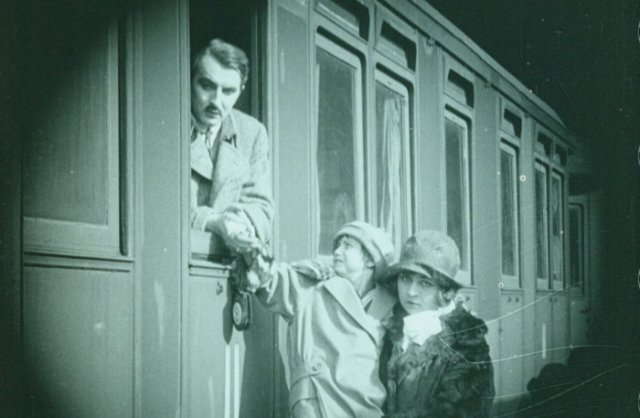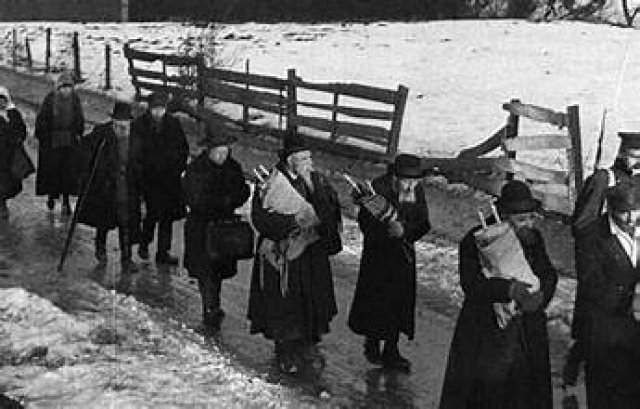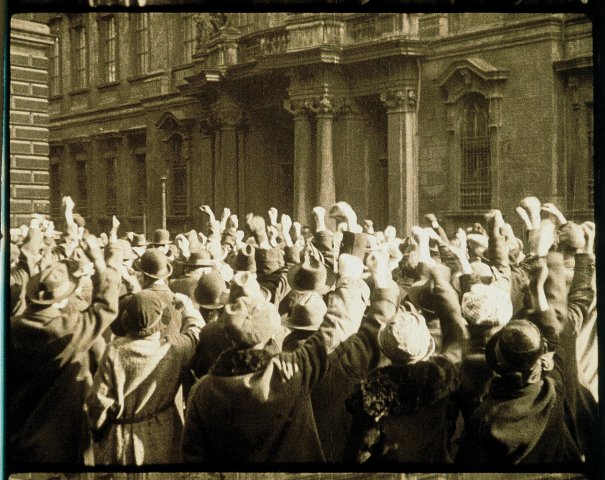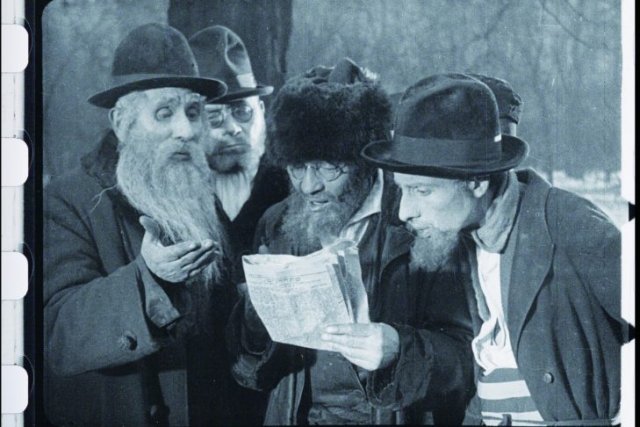The City Without Jews Screened in New York
An Important Silent Film With Wonderful New Music
By: Susan Hall - Oct 04, 2023
The City Without Jews
Baruch Performing Arts Center
What a silent film can teach us – about history and the relationship between the visual and the auditory.
The City Without Jews is a famous 1924 silent film directed by H. K. Breslauer who would go on to become a Nazi, probably out of convenience. In this film, he actually seems to like Jews, to find them charming, bright and funny.
He based his work on a popular Austrian author of the time, Hugo Bettauer. Bettauer's The City Without Jews sold 250,000 copies in its first year, and became one of Bettauer's most controversial works. Nazi sympathizers attacked Bettauer, denouncing him as the "Red poet" and a "corruptor of youth.” Bettauer was shot by a nascent Nazi a year after the film based on his book was released. Noted anti-Semites helped the shooter at trial where he was declared insane and left an asylum 18 months after his institutionalization.
I am often in the Mitte section of Berlin, where I walk slowly on Rosenthaler Strasse toward Hackershermarkt and stop to read the stumbling stones on which are written the dates of Jewish residents who were taken off to the concentration camps and killed. Reading these people's life and death dates is always shocking.
This film forecasts through expressionism and parody, events that would come to pass. Tom Stoppard's Leopoldstadt portrays Jews thinking they are immune from the political climate. We know from this film that others saw what was coming.
The book/film is set in Utopia, a version of Vienna, where the most cultured and educated people in the world lived. Even today, when the current magnificent music director of the Berlin Philharmonic left Siberia, he came to Vienna to study music. It is the city Thomas Berhard writes about.
Both Jews and non-Jews often remark that jealousy and fear drive anti Semitism. In The City Without Jews The non-Jewish population feels that their jobs are being taken away. The non-Jewish business tribe feels that Jews do business and finance better.
The answer? Pass legislation that removes Jews from the city.
They do. And we see the exodus parade, which ex post facto looks so terribly familiar. A gray, snowy day. Elderly people tramping along struggling to carry their most precious possessions.
For all the sober thoughts that inevitably erupt as you watch the film, it is fun, and full of delightful movement and expression. These are celebrated in a score written and performed by violinist Alicia Svigals, a leading light in Klezmer music. It is one of the finest scores I've heard accompanying a silent film. Notes and phrases underpin motion and expression on screen. Yet Svigals' take on movement mickey-mousing is just enough for pleasure and does not tip over into silliness unless it's required by the images. Graceful switches between Beethoven and Klezmer suggest different cultures can get along. Donald Sosin accompanied perfectly on the piano.
The film is traveling and deserves an audience. What do we know now that could have disastrous implications for our future? This charming, fun wake-up call to the potential aftershocks of cruelty and disaster is a good place to start thinking about tomorrow today.





